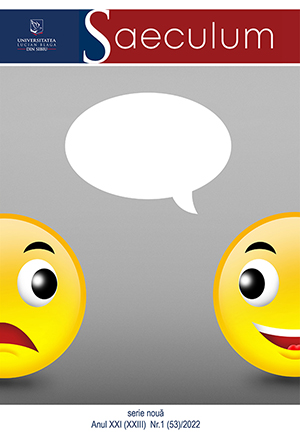Language competence in media during the pandemic – interlanguage aspects
Language competence in media during the pandemic – interlanguage aspects
Author(s): Ioana CrețuSubject(s): Media studies, Communication studies, Lexis, Health and medicine and law
Published by: Editura Universitatii LUCIAN BLAGA din Sibiu
Keywords: media discourse; lexical elements; Corona crisis; quality journal;
Summary/Abstract: Free media is essential for a democratic society. The limitations of media freedom and freedom of speech despite of pluralism of the press in former communist countries in Southeast of Europe, including Romania, are related to media ownership, but also with gaps in the national legislation. But it is also not to be overlooked that today not only in these countries the original information journalism has often changed to an entertainment journalism. In times of crisis, sober and factual information is particularly important. This article examines the structures that occur in reports and news about Corona, in the Romanian media and also in comparable language and style elements in the German press. The examples concern the language of the online media of the most popular information sources (from publications as well as from audio media and news agencies). The criteria of the chosen examples are mainly lexical aspects, but also stylistic differences. The characteristics of media language during the Corona pandemic include specific constructions such as the use of new formations and technical terms, as well as compound words and foreign words, but also differences in the style of reporting. The observed difference in the style of reporting contributes to increased uncertainty and feelings of fear during Corona times. The flood of information in particular creates the risk of narcotic dysfunction in the mass media. There is the possibility of under informing or even failure of the information function of the media due to different media usage and the use of information sources that often do not correspond to quality journalism. In times of crisis, the threat to freedom of the press also increases. The conclusion of the article is that a better media education and media training is needed to avoid manipulation but also the tabloidization of the press.
Journal: SAECULUM
- Issue Year: 53/2022
- Issue No: 1
- Page Range: 26-38
- Page Count: 13
- Language: Romanian

